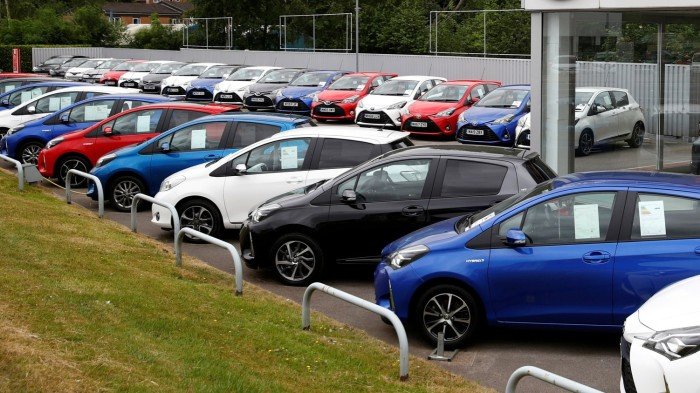Unlock the Editor’s Digest for free
Roula Khalaf, Editor of the FT, selects her favourite stories in this weekly newsletter.
Specialist UK bank Close Brothers swung to a loss in the six months to the end of January after it set aside £165mn to cover the potential redress costs of a probe and court ruling on the mis-selling of car finance loans.
The bank on Tuesday reported a statutory £104mn operating loss for the six months, down from a £87mn profit in the same period last year. It announced the £165mn provision last month.
The Financial Conduct Authority, the regulator, last year launched a probe of historic “discretionary commission arrangements”, where car dealerships received bigger commissions for charging customers higher interest rates on car finance loans, without their consent.
Close Brothers, proportionally the UK’s largest car finance provider, subsequently suspended its dividend and launched a £400mn capitalisation plan, including the sale of its asset management business.
In October last year, the Court of Appeal ruled it was unlawful for banks to pay any commission to car dealers if customers had not given informed consent. Discretionary commission arrangements were banned by the FCA in 2021.
Close Brothers said on Tuesday that it would not pay an interim dividend. It spent £8.4mn on operational and legal costs to handle a sharp rise in car finance complaints in the six months to the end of January and expects a full-year figure of about £22mn, up from its previous forecast of £10mn to £15mn.
The group resumed car finance lending in January, having paused it after the October court ruling. The freeze hit new business volumes by an estimated £100mn which Close Brothers estimates will lead to a £4mn reduction in full-year adjusted operating profit.
The bank said it expected “modest growth” of its loan book in the second half of the financial year and that by the end of its financial year, its loan book would be “broadly flat” compared with last year.
Close Brothers said the sale of its asset management business had generated a profit of about £59mn on disposal and bolstered its capital position. Its common equity tier 1 ratio — a measure of financial resilience — was 13.4 per cent after the sale, it said.
Chief executive Mike Morgan, who took over the role in January, said however that there was “more to be done” to make the business more efficient.
“We are actively evaluating our lending mix and portfolios to ensure they maximise returns,” he said, adding that he had started a review of operational efficiency and costs.
“A more efficient, focused group will allow us to reinvest in areas with the greatest growth potential,” he said.

